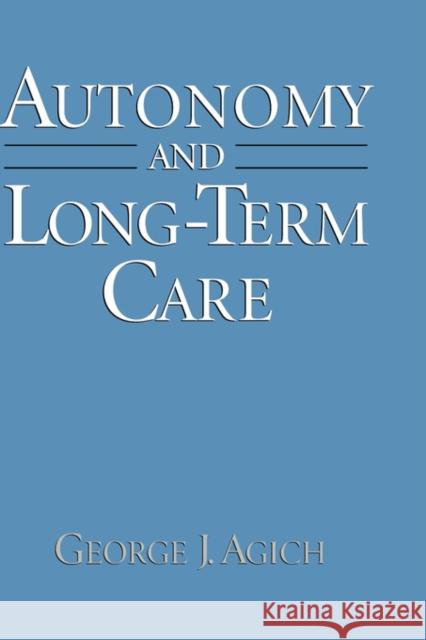Autonomy and Long-Term Care » książka
Autonomy and Long-Term Care
ISBN-13: 9780195074956 / Angielski / Twarda / 1993 / 216 str.
The realities and myths of long-term care and the challenges it poses for the ethics of autonomy are analyzed in this perceptive work. The book defends the concept of autonomy, but argues that the standard view of autonomy as non-interference and independence has only a limited applicability for long term care. The treatment of actual autonomy stresses the developmental and social nature of human persons and the priority of identification over autonomous choice. The work balances analysis of the ethical concepts associated with autonomy with discussion of the implications of the ethical analysis for long term care. A central chapter involves a phenomenological analysis of four general features of everyday experience (space, time, communication, and affectivity) and explores their practical implications for long term care. This work concludes with a discussion of the advantages associated with a phenomenologically-inspired treatment of actual autonomy for the ethics of long-term care.











